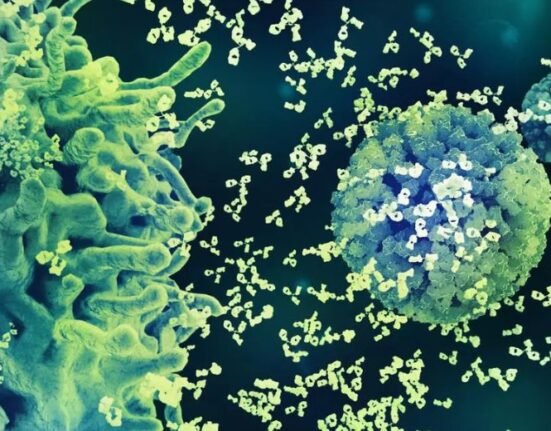HQ Team
February 6, 2024: Novartis AG is set to buy a German-based biotechnology company, MorphoSys AG, for $2.9 billion, giving the Swiss firm access to a key drug for treating blood cancer.
Novartis will own the investigational drug pelabresib, a treatment option with a “well-tolerated safety profile provided in combination with ruxolitinib for patients with myelofibrosis, according to a statement.
It will also include tulmimetostat (CPI-0209), an early-stage investigational dual inhibitor, currently being tested in patients with solid tumours or lymphomas.
“We are excited about the opportunity of bringing pelabresib, a potential next-generation treatment combined with ruxolitinib, to people living with myelofibrosis, a rare and debilitating form of blood cancer,” said Shreeram Aradhye, M.D., President, Development and Chief Medical Officer of Novartis.
Strengthen pipeline
“With the planned acquisition of MorphoSys, we aim to further strengthen our leading pipeline and portfolio in oncology, adding to our capabilities and expertise.
“Building on our long-standing development partnership with MorphoSys, we look forward to continuing our work together to realize the full impact and value of their investigational medicines for patients with unmet needs,” he said.
Novartis will make a voluntary public takeover offer for all no-par value bearer shares of MorphoSys AG for 68 euros a share for a total consideration of $2.9 billion.
The deal is expected to close by the first half of 2024.
Pelabresib is being investigated as a treatment for myelofibrosis and has not yet been approved by any regulatory authorities. The development of pelabresib was funded in part by The Leukemia and Lymphoma Society.
Clinical trials
In the final stage of clinical trials, all clinical hallmarks of the disease in myelofibrosis were improved with the pelabresib and ruxolitinib combination, according to the Novartis statement.
Myelofibrosis is a blood cancer – belonging to a group of diseases called myeloproliferative neoplasms.
It is caused by genetic abnormalities in bone marrow stem cells and is characterised by four hallmarks — enlarged spleen, anaemia, impaired bone marrow microenvironment causing fibrosis, and debilitating symptoms.
The symptoms include severe fatigue, night sweats, itching, increased bleeding and significant pain caused by their enlarged spleen.
About 90% of newly diagnosed patients have intermediate to high-risk disease, which has a worse prognosis and a higher likelihood of disease-associated symptoms.
Tulmimetostat is being tested as a once-daily oral treatment in mid-stage trials in patients with advanced solid tumours or lymphomas, including ovarian clear cell carcinoma and endometrial carcinoma.








